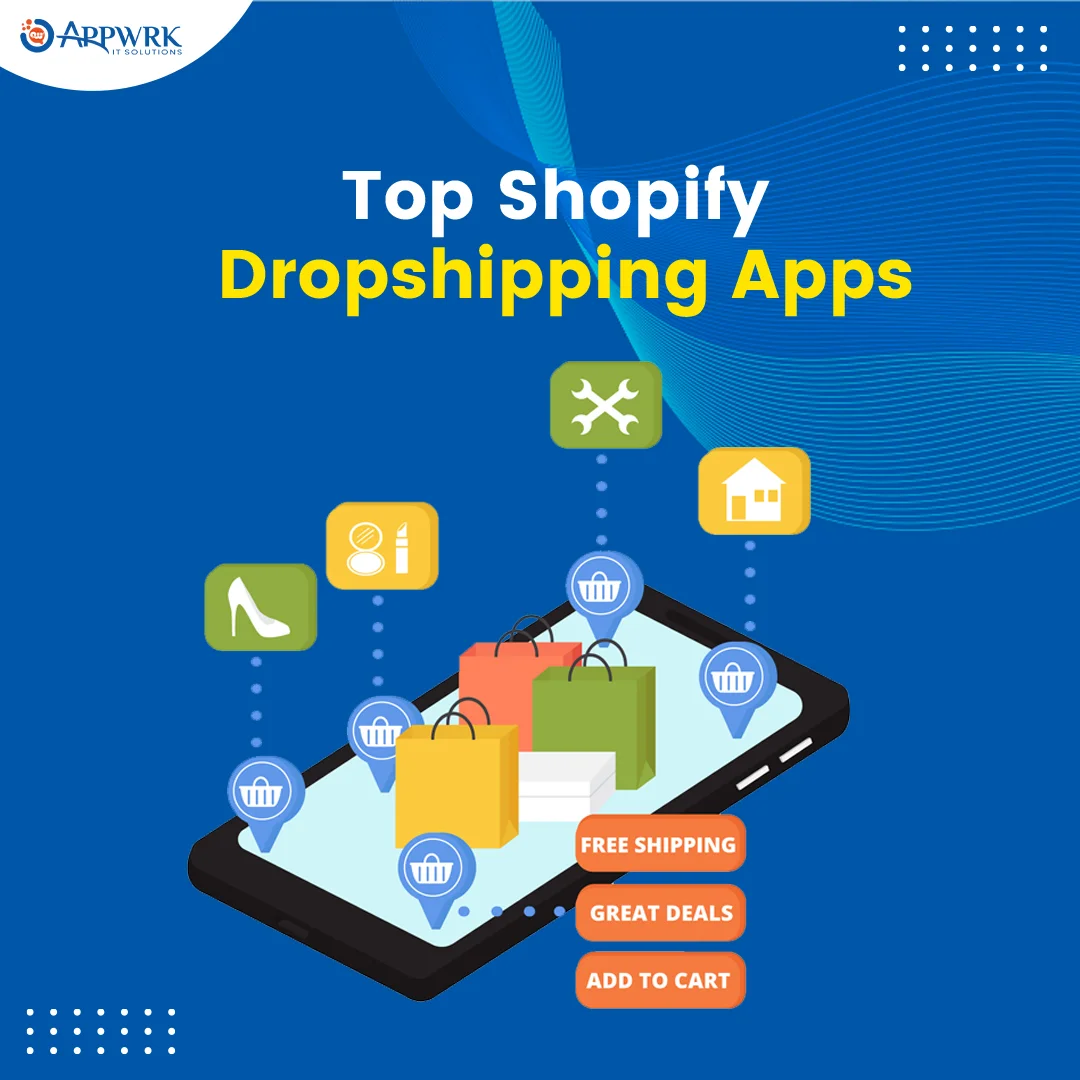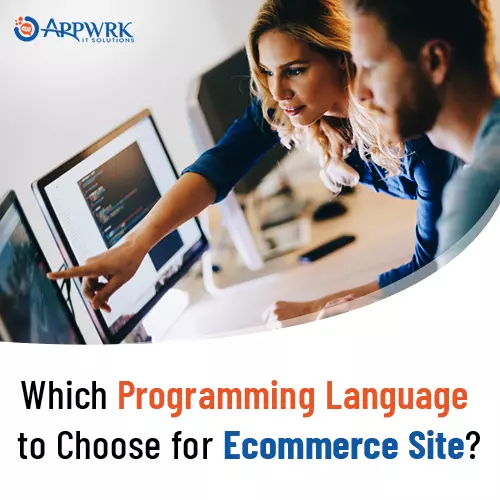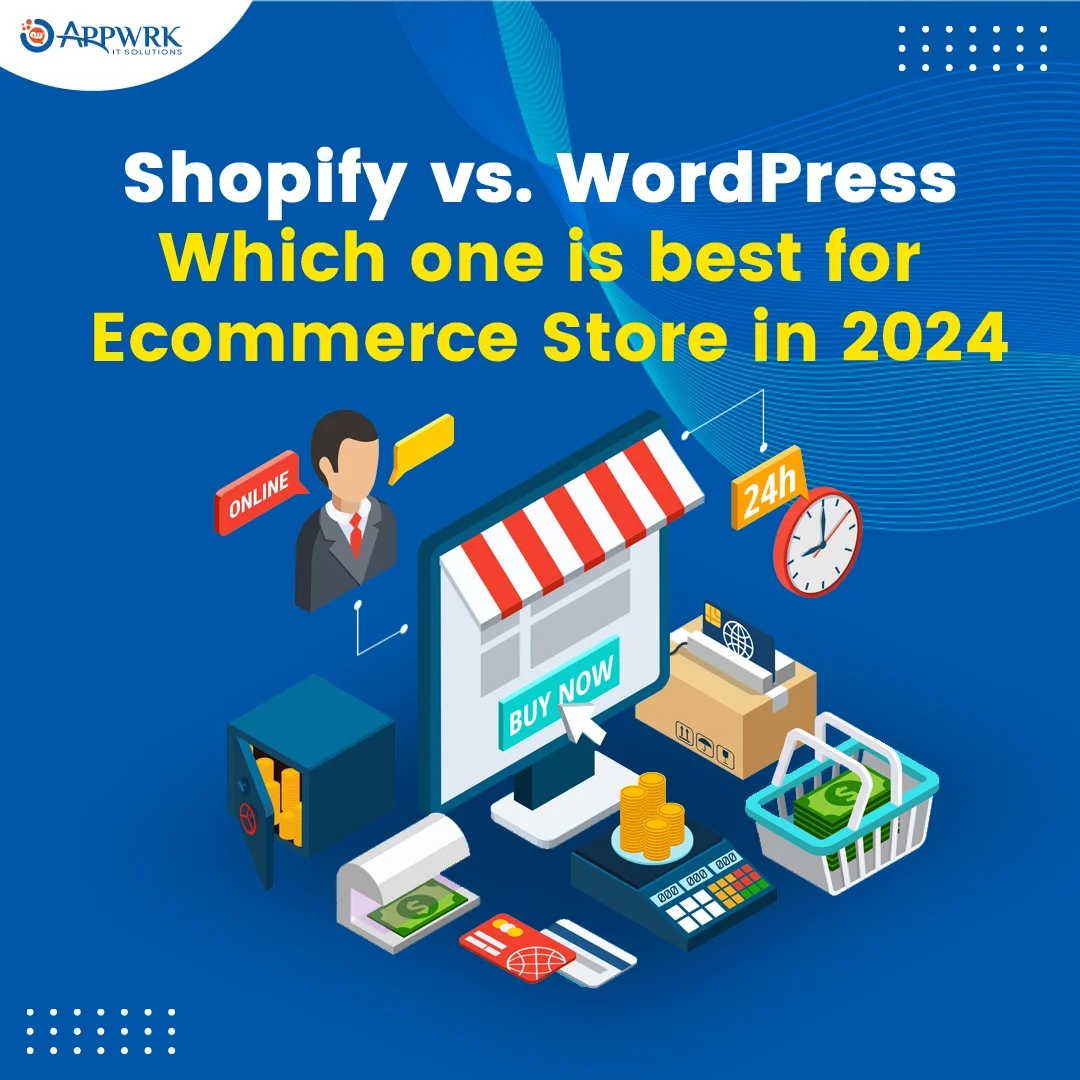Shopify vs WooCommerce 2025 – Ecommerce Comparison Trends
Shopify vs WooCommerce is a great buzz these days. While WooCommerce is the best WordPress Ecommerce plugin, Shopify is the best standalone platform for developing an E-commerce store. With global E-commerce sales hitting $5.7 trillion, there’s never been a better time to start an online store. However, selecting the best E-commerce platform between WooCommerce and Shopify isn’t always easy.
That’s why we’ve prepared this Shopify vs. WooCommerce 2025 guide to compare these two popular E-commerce platforms. There are also some significant differences between Shopify and WooCommerce when it comes to inventory location.
In this post, we’ll help you decide whether WooCommerce or Shopify is your ideal E-commerce partner based on your business requirements. Both are good for a specific type of E-commerce business owner. We’ll discuss how simple these platforms are to use, their features, their pricing, and how well they support small, medium, and large E-commerce businesses.
Let’s begin with the comparison between Shopify vs WooCommerce.
Table of contents
- How does Shopify vs WooCommerce approach E-commerce?
- Top Reasons for Selecting Shopify Over WooCommerce
- Which is Easier to Install? Shopify vs WooCommerce
- Shopify vs WooCommerce – Control Over Functionality and Customization
- How Secure Are Both Platforms? Shopify vs WooCommerce
- Shopify vs WooCommerce – Unmatchable Robust Features
- Shopify vs. WooCommerce SEO – Search Engine Optimizations
- Pricing Comparisons – Shopify vs WooCommerce
- Reasons Why Merchants Prefer Shopify vs WooCommerce
- Conclusion on Shopify vs WooCommerce
- FAQs based on Shopify Vs WooCommerce
How does Shopify vs WooCommerce approach E-commerce?
While Shopify is a complete E-commerce solution that can be installed with just a few clicks and inputs, WooCommerce requires a little more time and technical knowledge for its installation. Let’s have a detailed look.
WooCommerce Approach for Ecommerce
WooCommerce is an open-source plugin we can add to the WordPress content management system. WordPress theme developer – WooTheme created it, and it was acquired by Automatic in 2015. Installing and activating this plugin just like any other WordPress Plugin is possible. If you don’t have a site, you must first adopt WordPress as your CMS and build a website. Only then can you install the plugin.
Further, you must purchase E-commerce hosting, while you can run WooCommerce over an on-premise server, most store owners buy web hosting packages. Choose the best hosting provider for the best results, as they provide 24/7 technical troubleshooting support.
Shopify Approach for Ecommerce
In between Shopify vs WooCommerce, While WooCommerce relies on WordPress, Shopify is the complete E-commerce solution that Tobias Lutke and Scott Lake created. Shopify has all you require to launch an online store and start accepting payments out of the box. It is a hosted solution, so you do not need to worry about the technical side of your online store. You can create your store with all relevant features within minutes. And the above factors make Shopify the best option for those who want to develop their E-commerce store fast. If you do not require control over each aspect of your shop, Shopify is the platform you should prefer.
Feature Comparison Chart: Shopify vs Woocommerce
The top feature-based comparisons for Shopify vs Woocommerce are as follows:
| Feature | Shopify | Woocommerce |
| Ease of Use | Easy | Requires technical expertise. |
| Pricing | Charges monthly subscription fee. | Free but requires payment for web hosting, domain, SSL, and others. |
| Built-in Features | More built-in features. | Fewer built-in features. |
| Customization | Less customization. | More customization. |
| Security | Provide a built-in security team. | The store owners need to plan for security on their own. |
| Inventory Management | Provide built-in inventory management features like the ability for product variant management, low stock alerts, and stock trading. Requires apps for advanced features like warehouse management and purchase orders. | It requires plugins, but more customization is possible at a more granular level. |
| Payment Processing | Higher transaction fee. | Lower transaction fee. |
| Shipping | It offers built-in basic shipping features and supports advanced features through apps. | It requires plugins but offers more customization. |
| Taxes | It can automate basic tax calculations in supported areas. However, it requires apps for advanced tax calculations and international locations. | Provide more flexible features through plugins. |
| Marketing and Sales Features | It provides built-in features like abandoned cart recovery, discount codes, and email marketing tools. However, advanced marketing automation and loyalty programs are available through apps. | It offers a broader range through the plugin. Lacks built-in support for marketing and sales. |
| Analytics and Reporting | It supports basic reporting and requires apps for advanced reporting. | Integrable with Google Analytics for advanced reporting. It requires plugins to store data, which are specific and custom dashboards. |
| App Store and Extension | An app store is available with apps related to each requirement. However, essential requirements not included in the basic plan can be expensive. | For all features and functionalities, both free and paid plugins are available. However, plugins should be selected intelligently to avoid conflict. |
| Scalability | It scales with businesses, but transaction fees can eat up the profit. For large stores, migration to a custom solution might be required. | Highly scalable through upgrading of web hosting plan. |
| Content Management | Limited content management features. | Relies on the power of WordPress for content management. |
| Multilingual Support | It requires apps but needs to be more flexible. | It requires plugins but is more flexible. |
| SEO | Built-in support for basic SEO, but advanced options still need to be improved. | Relies on WordPress SEO features. Advanced SEO options are available. |
| Social Commerce | However, essential social media integration options require apps for advanced social media features. | Feature available through plugins. Built-in support is unavailable. |
| Mobile App | Provide mobile app for managing store but require custom mobile application development apps, which can require some payment. | Requires plugins for mobile app development. It’s more flexible, but technical expertise is required. |
| Customer Support | 24/7 support through different channels. | Relies on plugin developers and the community forums. |
| Data Ownership and Export | You own data, but it’s complex to Export. | Full access and exporting are also effortless. |
| Payment Gateway fee | High transaction fees if not using Shopify Payments. | It depends on Payment Processor and is undoubtedly lower than Shopify. |
| Developer Friendliness | There is limited code access and apps and experts are required for advanced-level customization. | WooCommerce Developer supports complete access to code for customization. |
Top Reasons for Selecting Shopify Over WooCommerce
Upon signing up, features offered by Shopify Vs WooCommerce:
| Features | Shopify | WooCommerce |
| Hosting | Yes | No |
| Subdomain | Yes | No |
| Built-in fraud detection | Yes | No |
| SSL Certificate | Yes | No |
| Unlimited Storage | Yes | No |
| PCI-DSS Compliance | Yes | No |
| 24/7 Customer Support | Yes | No |
WooCommerce doesn’t provide these services directly. The owners must buy hosting, subdomain, SSL certificate, and storage separately. While Shopify is PCI DSS compliant, for WooCommerce, you must rely on a hosting provider and payment gateway to comply with PCI DSS. WooCommerce surely doesn’t provide 24/7 customer support like Shopify, and the users must rely on documentation, community forums, and third-party support, which could be more user-friendly. Some hosting providers, however, provide support for WooCommerce through some of their hosting plans, but you require paying extra for this specific support option.
Which is Easier to Install? Shopify vs WooCommerce
Between shopify vs WooCommerce, if we focus on how simple it is to create a fully functional store that is ready to accept orders, then Shopify is the clear winner. While you can make a fully functional E-commerce store in Shopify with just a few clicks, you must build a WordPress website in WooCommerce. Though the installation guide is available, there is a steeper learning curve involved in WooCommerce than Shopify.
Shopify vs WooCommerce – Control Over Functionality and Customization
WooCommerce provides more control over the website functionality and customization options. However, Shopify is an all-in-one solution offering a more straightforward setup and built-in features. While WooCommerce supports extensions and customization through thousands of plugins and add-ons, Shopify keeps through Shopify apps.
Shopify vs WooCommerce who Offers Built-in Multi-channel Integration Feature?
Shopify also provides built-in multi-channel integration. This feature leverages you to promote and sell your product across social media platforms like Facebook, Instagram, TikTok, Walmart, and eBay.
In the case of WooCommerce, selling across multiple channels requires installing additional plugins.
How Secure Are Both Platforms? Shopify vs WooCommerce
While Shopify provides built-in security, you must rely on a hosting provider to ensure security if you opt for WooCommerce. Though all security features are available in both, we should remember that WooCommerce is a self-hosted platform, and you, as the owner, will be responsible for making the best use of security features provided by WooCommerce to ensure the best level of security. In the case of Shopify, they have a security team of experts who will look after the security of your E-commerce store.
Shopify vs WooCommerce – Unmatchable Robust Features
Simplifying the Shopify Robust Features and Functionalities that WooCommerce Can’t Match. When we talk of the following, then Shopify is clear winner in comparison with the WooCommerce.
- All-in-one Option
- Out-of-the-box solution
- Reliable customer support
- Free subdomain
- SSL certificate
- Unlimited file storage
- Multiple language support
- Site Speed
- Reliable Uptime
- PCI DSS Compliance
Shopify vs. WooCommerce SEO – Search Engine Optimizations
E-commerce store owners require SEO to ensure their websites rank on Google’s SERPs. While Shopify has a built-in SEO plugin that helps with basic SEO practices, WooCommerce is even more profound and provides more elaborate SEO feature customization, which we list below. Thus, WooCommerce is a better choice than Shopify in terms of SEO. Lets monitor the difference between Shopify vs WooCommerce when it comes to SEO capabilities.
What Shopify Offers in SEO Practices?
Shopify helps with basic SEO practices like:
- Meta information
- Site copy
- Ensures faster website load speed on average
- Well-structured HTML5 and CSS, which is good for SEO
What WooCommerce Offers in SEO Practices?
However, WooCommerce helps with advanced SEO practices like:
- Altering body content
- Modify URLs
- Modify meta descriptions
- Modify Alt tags
- Modify various other on-page elements through excellent SEO tools
- editing robots.txt and .htaccess files, but this requires some technical knowledge
Hence, the Shopify vs. WooCommerce SEO comparison favors WooCommerce due to its more customization options for SEO requirements. However, WooCommerce has fewer built-in features and relies more on plugins, whereas Shopify has more built-in SEO features, one of the differences between Shopify and WooCommerce.
Pricing Comparisons – Shopify vs WooCommerce
As, both shopify vs woocommerce are dynamic in nature and provide different kind of solution to solve specific business needs thus the pricing model also gets variation according to the plans opt by the customer both shopify vs woocommerce provide the basic plans to advance level plans to fulfill the needs of business owners. lest compare pricing for both shopify and woocommerce for better clarifications.
Lets Start with WooCommerce Pricing
When comparing WooCommerce pricing vs. Shopify, you need to consider a few things, such as hosting, domain name, and SSL certificate. While WooCommerce is free, you must buy WordPress hosting, domain names, and an SSL certificate to utilize the feature of WordPress .
You require paying for WooCommerce
Hosting: $10 to $30 per month
Domain name: $!0 to $!5
SSL Certificate: $50 to %80
While this is an essential requirement, you must invest in premium WooCommerce themes or the extension you will use. Once you have added that, you will get the final cost of running an E-commerce website on WooCommerce.
On the other hand Shopify Pricing
With Shopify, your hosting, domain name, and SSL certificate charges are included in the monthly subscription charges. Hence, the base cost is much higher for Shopify.
1. Basic Shopify plan
The Basic Shopify plan can cost you as below:
Monthly Subscription fee: $29
Other charges:+ 2.9% (2.7% for in-person)
Commission for online transactions through credit cards: +$0.30
Extra transaction fee for any non-Shopify Payments providers: +2.0%
2. Mid-Shopify plan
The Shopify plan can cost you as below:
Monthly Subscription fee: $79
Other charges:+ 2.6% (2.5% for in-person)
Commission for online transactions through credit cards: +$0.30
Extra transaction fee for any non-Shopify Payments providers: +1.0%
3. Advanced Shopify plan
The Advanced Shopify plan can cost you as below:
Monthly Subscription fee: $298
Other charges:+ 2.4% (2.4% for in-person)
Commission for online transactions through credit cards: +$0.30
Extra transaction fee for any non-Shopify Payments providers: +0.5%
4. Shopify Plus plan
We also have a Shopify Plus plan from Shopify
Monthly Subscription: Starts at USD 2,000
Other Expenses:
Variable fee: 0.25% of monthly revenue (if it exceeds $800,000)
Transaction fees:
- Shopify Payments: Minimum rates, specific rates based on location (You can contact Shopify for details).
- Third-party processors: You are required to pay processor fees + 0.20% per transaction to Shopify.
There is also Lite for small business owners Shopify vs WooCommerce
While Shopify tries to remain competitive through low credit card and transaction fees with higher tier plans, it is costly compared to WooCommerce at first sight. However, you might invest in development when you opt for WooCommerce and buy customer support like eDesk to match Shopify.
Also, as a layman, you will require the help of a technical expert now and then; you must rely on live chat or ticketing services, but you will still pay the same amount as Shopify in conditions where you try buying services that match Shopify. If you opt for 24/7 technical support services, you will pay more, which will be more expensive than Shopify. However, WooCommerce does not involve any commission on transactions, so it can be cheaper in the long run. Still, only when technically sound in case your annual revenue is low or, in other words, you are a small or medium-sized firm.
Reasons Why Merchants Prefer Shopify vs WooCommerce
What Small and Medium level Merchants Prefer
Small and medium level Merchants prefer Shopify when we compare Shopify vs WooCommerce because of the following reasons:
- It is a comprehensive store
- It was built specially for E-commerce
- You can launch your store in a matter of few clicks and inputs
- Multi-store options through admin and not plugin
- Security
- Reliable development
What Larger firm Owners Prefer
Merchants involved in very large-scale business prefer WooCommerce because it provide various of benefits.
No commission is engaged in the WooCommerce case, which can save much money for larger businesses.
As a prominent firm, they can afford a technical team for a small percentage of the vast money they save through freedom from commission. So technicality is not an issue for them.
Note:
Small business owners with technical expertise also prefer WooCommerce.
Conclusion on Shopify vs WooCommerce
Shopify is ideal for small and medium-sized businesses seeking an easy-to-use, fully hosted solution without the need for technical expertise in hosting, payment processing, or security. On the other hand, WooCommerce is preferred by larger businesses for its cost-effectiveness, code control, and ability to create personalized stores. Whether you prioritize convenience or customization, there’s a clear choice between Shopify and WooCommerce based on your business size and technical capabilities.
When discussing Shopify and WooCommerce, consider how APPWRK can assist in streamlining your e-commerce setup, providing expert guidance on platform selection, customization, and optimization to align with your business goals and technical needs. Ready to elevate your online presence? Contact us today for personalized support!
FAQs based on Shopify Vs WooCommerce
Ans. Undoubtedly, Shopify is more user-friendly as compared to WooCommerce.
Ans. Both platforms support substantial payment and checkout options. However, in addition to other payment options, Shopify offers Shopify Payments, its own payment service, which can simplify the payment procedure and reduce the transaction fee.
Ans. Shopify and Woocommerce are good at managing and tracking shipping and inventory processes. However, Shopify offers a built-in inventory system and seamless integrations with shipping carriers, making it a better option for businesses prioritizing inventory and shipping management.
Ans. Undoubtedly, Shopify provides better 24/7 built-in customer support than WooCommerce, which relies on third-party services like eDesk.
Ans. In the long run and for larger businesses, WooCommerce is cheaper, though both platforms can be used at almost the same rate for small and medium enterprises. While WooCommerce is open source, it requires additional investments in hosting, security, domains, SSL certificates, and themes. It also requires further investment in 24/7 customer support.
Ans. Undoubtedly, WooCommerce is better than Shopify when it comes to SEO.
About The Author






 Free Quote
Free Quote
















































